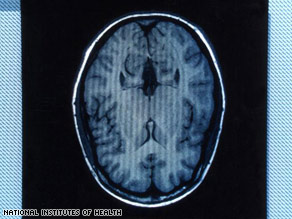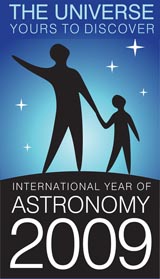 There seems to be a lot of conflicting information being published about coffee and its effect on us. Of course that’s not new; some people have always said it’s bad for you to drink coffee and some have said it’s good. I remember as a child it was forbidden to have coffee unless, of course, it was one part coffee to about 6 parts milk. But now science has put its oar in the water and the boat is spinning…
There seems to be a lot of conflicting information being published about coffee and its effect on us. Of course that’s not new; some people have always said it’s bad for you to drink coffee and some have said it’s good. I remember as a child it was forbidden to have coffee unless, of course, it was one part coffee to about 6 parts milk. But now science has put its oar in the water and the boat is spinning…
First there’s the good.
Last April (2 April 2008), BBC News ran this article, Daily Caffeine ‘protects brain’. This study basically showed that caffeine helped protect the brain’s blood/brain barrier from decaying. Saying among other things:
The University of North Dakota study used the equivalent to just one daily cup of coffee in their experiments on rabbits.
After 12 weeks of a high-cholesterol diet, the blood brain barrier in those given caffeine was far more intact than in those given no caffeine.
Caffeine is a safe and readily available drug and its ability to stabilise the blood brain barrier means it could have an important part to play in therapies against neurological disorders.
Dr Jonathan Geiger, University of North Dakota
All well and good. Just one cup a day and maybe, just maybe, I’ll be looking at having full mental capacity into my golden years.
Then there was more good news.
On January 16th, 2009 there was a report of a new study in theage.com.au, Coffee reduces Alzheimer’s risk: study.
This was a longitudinal study, meaning it took a long time to gather the data — usually having quite a bit of time between the first set of interviews and the second (in this case about twenty years). They interviewed 1,409 people in Finland. The people were first interviewed when they were in their 50s about their coffee-drinking habits then their memory functions were tested. These same people were re-interviewed when they were between 65 and 79. Again they were asked about their coffee drinking habits and their memory functions tested. What they found was that:
A total of 61 people had by then developed dementia, 48 of whom had Alzheimer’s, the researchers said.
The overall results of the study from the lead research:
“Middle-aged people who drank between three and five cups of coffee a day lowered their risk of developing dementia and Alzheimer’s disease by between 60 and 65 per cent later in life,” said lead researcher on the project, Miia Kivipelto, a professor at the University of Kuopio in Finland and at the Karolinska Institute in Stockholm
“There are perhaps one or two other studies that have shown that coffee can improve some memory functions (but) this is the first study directed at dementia and Alzheimer’s (and) in which the subjects are followed for such a long time,”
Note the number of cups of coffee listed — “between three and five cups … a day”. Because here comes the bad…
The Telegraph.co.uk on 13 January 2009 published Three Cups of Brewed coffee a day ‘triples risk of hallucinations’. Researchers looked at the
[Researchers examined the] caffeine intake of about 200 students, some of whom had experienced seeing things that were not there, hearing voices or sensing the presence of the dead. The volunteers were questioned about their caffeine intake from products including coffee, tea, energy drinks, chocolate bars and caffeine tablets.
So what did they find out from this study. Well:
Researchers found that “high caffeine users”, those who had more than the equivalent of seven cups of instant coffee a day, were three times more likely to have had hallucinations than those who had less than the equivalent of one cup.
Those who have three cups of brewed coffee a day could be at the same risk, they warn, because of the drink’s higher caffeine content.
On average the volunteers had the equivalent of three cups of instant coffee a day, which could still cause an increased risk, according to the study.
Remember, three to five cups a day could possible help protect you from Alzheimer’s. On the other hand, three cups of coffee or more in a day could cause you to hallucinate.
Oh, joy. Conflicting reports. See the problem with science is also what is good about it. Depending on what hypothesis you are testing and what groups you study, you will find different results. The point is that while the good and the bad here are in conflict when you’re trying to decide whether coffee is good for you or not, you can’t make an educated decision based on three pieces of data. You also have to take into consideration your own health. Do you have high-blood pressure? Caffeine can cause it to be elevated. Has your doctor told you to avoid coffee? Why? Have you talked with the doctor about your lifestyle and health history? Are you at risk for Alzheimer’s?
The problem is that people pretty much do what they want no matter what the issue is about. If you want to drink coffee you’re going to like the protection against Alzheimer’s reports and ignore the report on increased hallucinations even if the music in your head is bothering your neighbors. Humans tend to find the facts that backup what we want to do and then feel all happy and righteous about our decisions.
Me. Well, I’ve reduced my coffee intake to no more than two cups a day. By the way did you notice that not one of the studies included a definition of “cup of coffee” in their reports. Perhaps they did in the actual paper presented to their respective scientific conferences but for the lay person well it’s sort of up in the air. My cups are pretty big so reducing my intake to two cups might be the equivalent of five cups in those pretty delicate china cups with saucers. But since I used to have four or five of these big mugs/cups of coffee a day my reduction is pretty drastic. Besides the only times I’ve ever hallucinated has been when I was ill with very high fevers — I called them fever dreams. So, I’ll take my chances with my two mugs a day until the next batch of reports come out and then I may rethink depending on what the results show.
What will you do?
[Hyperion here] This is really interesting … unless, of course, she’s only hallucinating that she read these reports.
 NASA announced that it will finally get a good look at our Sun. NASA manages to put the importance of this ability in a nutshell:
NASA announced that it will finally get a good look at our Sun. NASA manages to put the importance of this ability in a nutshell:





